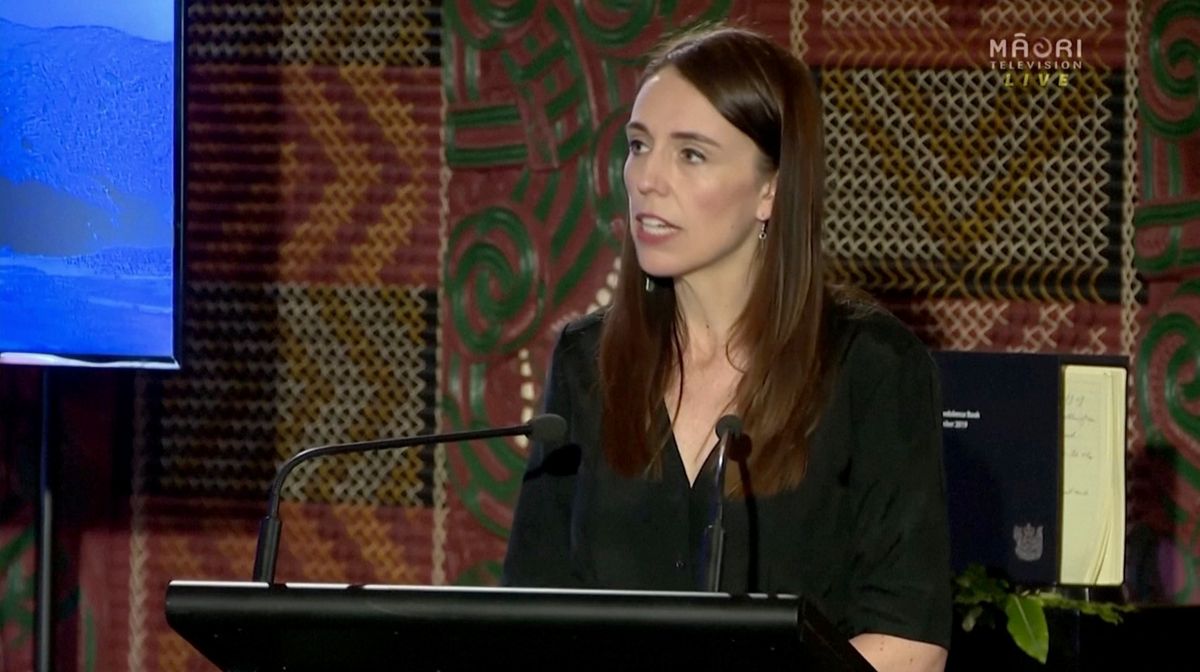New Zealand treads lightly amid increased China-Australia tensions

A few minutes every morning is all you need.
Stay up to date on the world's Headlines and Human Stories. It's fun, it's factual, it's fluff-free.
In what was once an amicable relationship based solely on trade, New Zealand is increasingly finding itself caught up in the growing tensions between Australia and Beijing.
The Five Eyes – the anglosphere nations of the United States, United Kingdom, Canada, Australia and New Zealand – recently criticized Beijing’s increasing encroachment of Hong Kong. Zhao Lijian.
In response to the criticism, the spokesman for the Chinese Foreign Ministry stated, “No matter how many eyes they have, five or 10 or whatever, should anyone dare to undermine China’s sovereignty, security and development interests, be careful not to get poked in the eye.”
In what was once an amicable relationship based solely on trade, New Zealand is increasingly finding itself not only caught between China and the West, but caught up in the growing tensions between Australia and Beijing.
China and New Zealand’s relationship so far
New Zealand broke many precedents for China’s relationship with the West. In 1997, New Zealand became the first Western country to back China’s admission into the World Trade Organization (WTO), the first to label the People’s Republic of China (PRC) a market economy and the first to sign a free-trade agreement with China.
New Zealand was also an early supporter of the Asian Infrastructure and Investment Bank and the nation also signed a memorandum of understanding with China’s Belt and Road Initiative in 2017. When Beijing adopted the national security law that knee-capped much of Hong Kong’s sovereignty, New Zealand was the only Five Eyes nation to opt out of attacking the new law, instead electing to make their own statement.
The agnostic view the country has taken regarding China’s strategic rise has attracted criticism from Western allies who have labeled New Zealand as the “soft underbelly” of the Five Eyes. New Zealand is also known to be the most vulnerable of the Five Eyes to Chinese political interference, which might most alarm New Zealand’s neighbor and closest ally, Australia.
In what many have referred to as “wolf warrior” diplomacy, Beijing has deployed party communications and public relations agents to attack countries that question the PRC. The commonwealth is the most recent recipient of this supposed attack. Australia called for an investigation into the origins of COVID-19, which is believed to be the cause for the soured relations between the two Pacific nations.
Australia has been rhetorically attacked for weeks, with that nation being referred to as “chewing gum stuck to the sole of China’s shoe” by Hu Xijin, the editor of the Beijing-controlled Global Times.
Tariffs of more than 200% were raised on the Australian wine market, of which China has been the largest destination. More recently, Zhao Lijian, the aforementioned Chinese Foreign Ministry spokesman, shared a photoshopped picture of an Australian soldier holding a knife to an Afghan child’s neck – a response to alleged crimes committed by Australian special operators in Afghanistan. Scott Morrison, the prime minister of Australia, expressed outrage over the fake image.
Australia has been an ally of the US for years. The South Pacific nation is a member of the Quad: a strategic partnership consisting of the US, India, Japan and Australia that is orchestrated as an unsubtle check on Chinese maritime power.
New Zealand’s changing role
The changing strategic reality in the Pacific may be dawning on Wellington. As the tensions between Australia and China worsens, New Zealand may be beginning to choose a side.
Wellington’s agnosticism towards Beijing has been subtly waning in recent months. New Zealand has barred Chinese telecommunications giant Huawei from developing New Zealand’s 5G network. Wellington has also suspended New Zealand’s extradition treaty with China and warned its citizens against visiting Hong Kong, stating that it can “no longer trust” that Hong Kong’s justice system is independent from the mainland.
The South Pacific nation’s tone toward Beijing, though still moderated, has become more critical than in the past and has emphasized the nation’s political independence. Purportedly, leaders in Wellington have expressed dissatisfaction with China’s recent actions. However, these moves are still moderate when compared to those of the other Five Eyes.
In a recent TV interview with Al Jazeera English, New Zealand foreign minister Nanaia Mahuta was still reluctant to direct criticism towards China, maintaining that New Zealand has a strong relationship with the country, despite the recent tensions between China and New Zealand’s close allies, like Australia.
Have a tip or story? Get in touch with our reporters at tips@themilsource.com




Comments ()